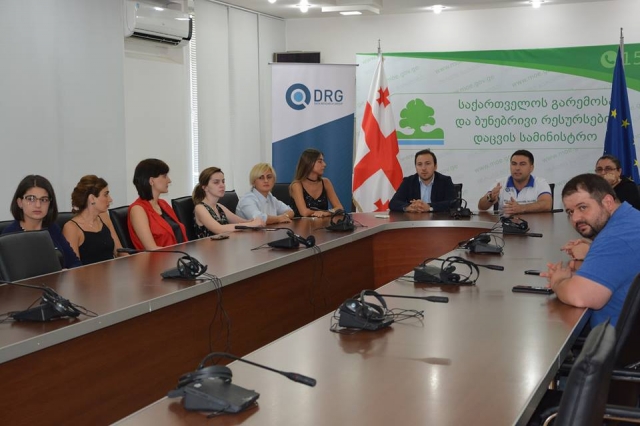Agency of Protected Areas Publishes Visitor Satisfaction Research Findings
Visitor satisfaction research findings were presented at the Ministry of Environment and Natural Resources Protection of Georgia, carried out specifically with regards to the visitors of protected areas in Georgia. The outcomes of the research was introduced to the public by David Markozashvili, Chairman of the Agency of Protected Areas of Georgia and the research group representative Lasha Gulbiani.
The research for visitors’ satisfaction was carried out on three of the protected areas; Martvili Canyon, Prometheus and Sataplia caves, in July-August 2017, 84% of visitors were satisfied with the services, while 88% of the visitors said they will definitely recommend their friends to visit the protected areas of Georgia. 68% of visitors said that staff working at the protected areas were friendly towards visitors and 88.3% of them noted they felt safe while travelling to the protected areas of Georgia.
At the same time, the respondents shared their own recommendations and ideas for making these protected areas of Georgia even more attractive to visitors, mentioning that more attractions should be added, and the infrastructure has to be improved, with more places for leisure activities and for dining to be added.
Overall, 238 visitors participated in the research, with 43.2% of them being Georgian nationals and 56.8% being foreigners. The survey is said to have been done through Georgian, Russian and English specialized questionnaires provided by interviewers to respondents.
The Agency of Protected Areas states that visitor satisfaction surveys and research are carried out regularly, the research group consisting of a group of extremely experienced researchers, with their works periodically being published in leading scientific publications around the world for the last 20 years.
The company, according to the Agency of Protected Areas, has the newest methods for data collection and analysis which enables them to carry out a high quality, large research in a limited period of time.
By Nino Gugunishvili











